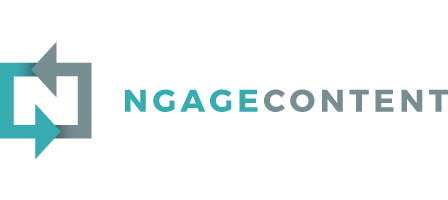
When you’re considering how to approach a B2B marketing plan, we strongly recommend avoiding the phrase, “fake it ’til you make it”. Looking up ways to get found online can quickly fill your head with all kinds of industry jargon, and if you’re not familiar with the industry, it’s easy to get lost down the rabbit hole.
Never fear — driving more leads to your business doesn’t have to feel like you’re guessing the entire way.
Embarking on a strong B2B marketing plan for your business is a smart move, and continually tweaking that plan to make sure you’re staying on top of how people are searching for and finding you is even smarter. The way search engines provide results is being altered all the time, and with it comes a slew of terms, acronyms, and buzzwords that you need to know to make sure your business stays at the top of searches — and customers’ minds.
Don’t let these key factors of your B2B marketing plan go flying over your head. If you want your business to effectively execute a marketing strategy, you have to understand what you’re trying to do — especially if you’re the one in charge of making sure that strategy is being carried out.
The general goal with just about every B2B marketing plan is having your product or service shown as the best option to the right audience from the very start of their search process. As Google and other search engines grow into more and more intelligent tools to help us find exactly what we’re looking for, it’s key for your business to play by their rules. This might mean a total website overhaul or just a few small tweaks to your existing marketing strategy to keep you in the clear. Yet no matter what project you’re tackling, it’s likely that you’ll run into a term you don’t recognize.
We all know the feeling of discreetly typing an acronym into Google and guessing which definition best applies to your situation. Our list of the top B2B marketing plan buzzwords will help you keep your phone in your pocket and your focus on how to start moving your business forward.
Kill the Headache: Knowing These 5 Buzzwords Will Help You Go from Novice to B2B Marketing Plan Master
1. Search Engine Optimization (SEO)
Let’s start big. You’ve surely heard this term tossed around before but maybe never fully understood what people want to achieve with it. The easy answer? SEO is a strategy to get your website listed on the first page of Google search results. However, there’s many tactics that make up SEO to have everything click. Essentially, you want Google to look at your site and say, this looks like a voice of authority, they’re the best choice for this keyword. SEO can help you get there. But here’s the kicker — Google knows if you’re lying.
The deep rundown on SEO is that it takes strong, longtail keywords that apply to your audience, links to pages within your site, links to other resources, great content, mobile optimization, a strong social media strategy, and more to get noticed. You can’t just stuff your pages with these things in hopes of shooting through the ranks. Google looks for everything to be organically put together throughout your site, especially keywords, in order to make sure they’re providing search results with the right answer.
2. Conversion Rate Optimization (CRO)
SEO puts people on your site, CRO takes their hand and leads the way inside. You want to bring people to your site, have them love what they see, and take whatever path of action you’ve chosen. When someone makes it this far, they become a lead for your sales team, and the exciting turn is called a conversion. CRO works to make it happen more often.
Similar to SEO putting you in good graces with Google, CRO puts you in good graces with your audience. Researching who is coming to your site and taking the steps towards contacting you or signing up for your newsletter helps you know who to target and how.
3. Call-to-Action (CTA)
Speaking of CRO, let’s get to know the trusted CTA. Every page on your site should be leading your audience towards what you want them to do. If they’re on a page about your product, what do you want them to do with that information now that they have it? A strong CTA does all the work for you.
Calling out how to reach your team, how to sign up to receive email updates about your business, or how to receive a resource that has more good information on the topic at hand helps drive your conversion rate, and keeps people on your site, which tells Google you’re a reputable source.
4. Organic Content
With every B2B marketing strategy there should be some kind of plan for organic content. This is the meat of your website (besides the code) that tells people who you are and what you do, in an effective way that speaks directly to them as a customer. It answers questions, proves experience, and speaks to everything your organization stands for.
Your organic content pieces are the backbone of your SEO and CRO strategies, and they can be reused to create even more content in a variety of forms. Think site pages, eBooks, blog posts, social posts, whitepages and more. The world is your oyster, and content is king.
5. Gated Content
Give the people what they want — for a price. Use your CTAs and your awesome content to create a compromise where everyone wins. In exchange for an email address, give your audience access to a piece of content that will make an impact on their buyer’s journey. Email addresses are becoming a more precious currency because people don’t want their inboxes to be constantly bogged down with promotional messages. Good gated content pieces are usually larger, like an eBook, and provide an in-depth answer to a question your customers are asking. They’ll be honestly interested in knowing, and willing to hand over the goods.

